Dental implant surgery is a procedure used to replace missing teeth with
artificial tooth roots made of biocompatible materials, typically
titanium.
Call us to book a appointment with the dentist near you.
A captivating smile has the power to light up a room and leave a lasting impression. However, for individuals who have lost one or more teeth, achieving that perfect smile can be challenging and often leads to a loss of self-confidence. Thankfully, dental implants offer a remarkable solution, enabling individuals to regain their smiles, oral functionality, and overall quality of life.
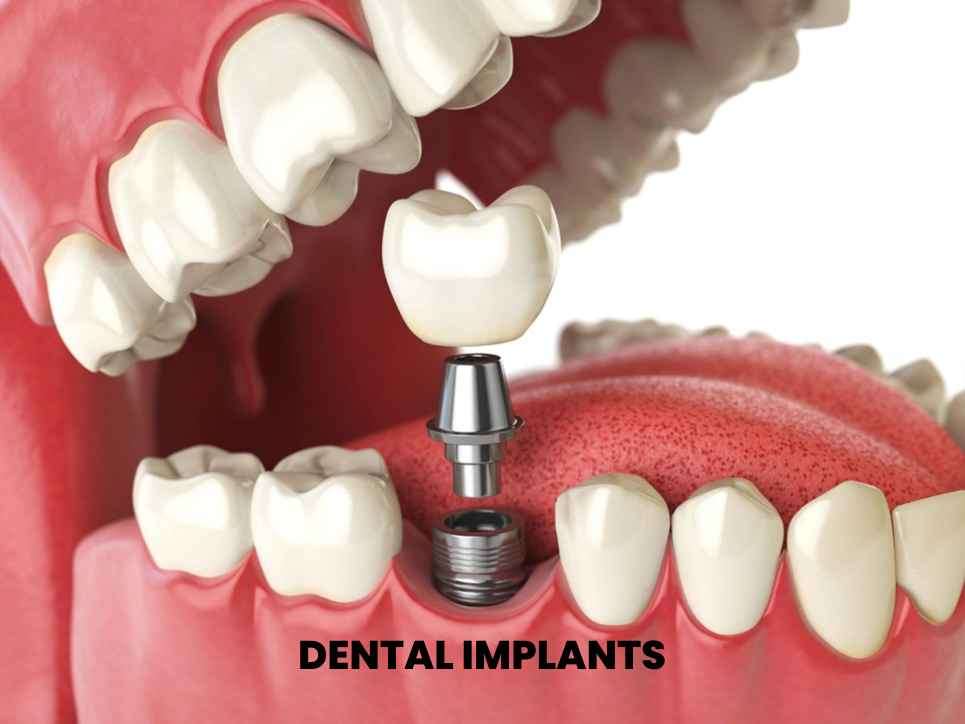
A captivating smile has the power to light up a room and leave a lasting impression. However, for individuals who have lost one or more teeth, achieving that perfect smile can be challenging and often leads to a loss of self-confidence. Thankfully, dental implants offer a remarkable solution, enabling individuals to regain their smiles, oral functionality, and overall quality of life.
Dental implants are prosthetic tooth roots made from biocompatible materials, such as titanium. These implants are surgically placed into the jawbone, serving as a sturdy foundation for replacement teeth. Unlike dentures or bridges, dental implants offer a long-lasting and natural-looking solution for individuals who have lost teeth due to injury, decay, or other dental issues.
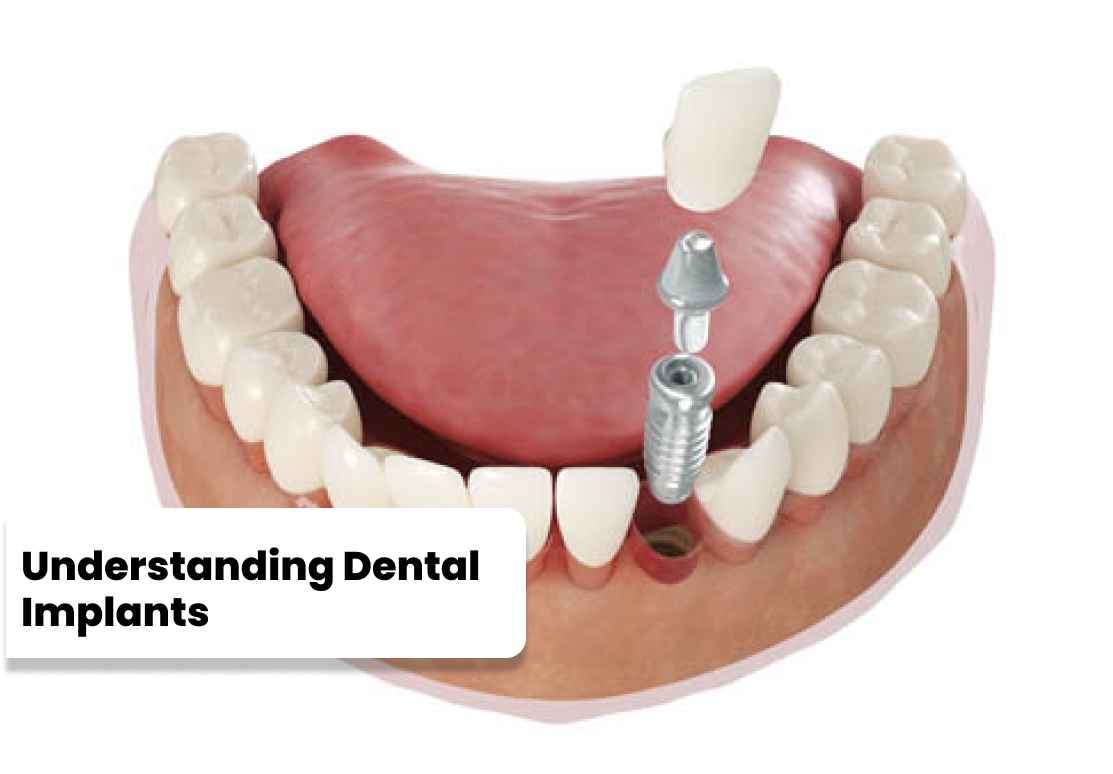
Dental implants are prosthetic tooth roots made from biocompatible materials, such as titanium. These implants are surgically placed into the jawbone, serving as a sturdy foundation for replacement teeth. Unlike dentures or bridges, dental implants offer a long-lasting and natural-looking solution for individuals who have lost teeth due to injury, decay, or other dental issues.
The dental implantation process typically involves several stages, starting with a comprehensive dental examination to assess the patient's oral health. During the surgery, the dental implant is placed into the jawbone, allowing it to fuse with the surrounding bone tissue through a process called osseointegration. This integration creates a strong and stable base for the artificial tooth or teeth that will be attached to the implant.
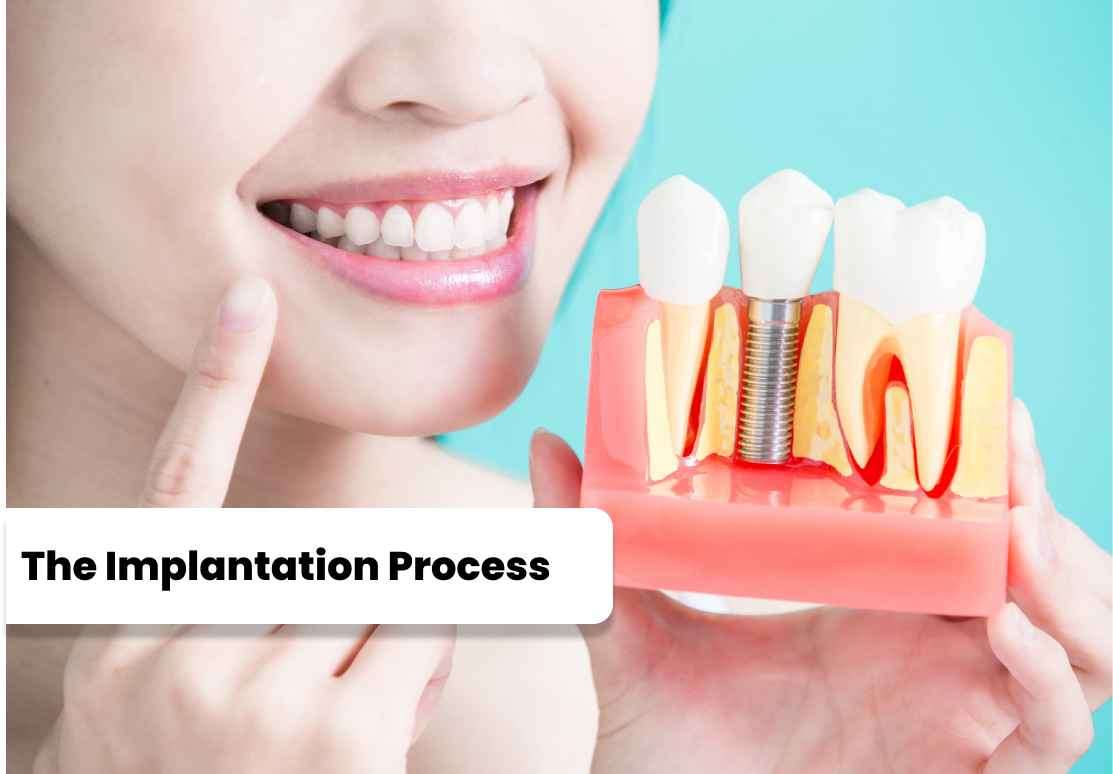
The dental implantation process typically involves several stages, starting with a comprehensive dental examination to assess the patient's oral health. During the surgery, the dental implant is placed into the jawbone, allowing it to fuse with the surrounding bone tissue through a process called osseointegration. This integration creates a strong and stable base for the artificial tooth or teeth that will be attached to the implant.
1. Restored Oral Functionality: Dental implants mimic the structure and function of natural teeth, allowing individuals to chew, speak, and bite with confidence. Unlike dentures, which may slip or cause discomfort, dental implants offer a permanent solution that feels and functions just like natural teeth. 2. Enhanced Aesthetics: Dental implants are designed to seamlessly blend with the surrounding teeth, providing a natural-looking smile. The custom-made prosthetic teeth are carefully matched to the color and shape of the patient's existing teeth, resulting in a smile that is virtually indistinguishable from natural teeth. 3. Preservation of Facial Structure: When a tooth is lost, the underlying bone in the jaw begins to deteriorate over time. Dental implants help preserve the bone structure by stimulating bone growth and preventing bone loss. This ensures that the facial structure remains intact, preventing the sunken appearance often associated with missing teeth. 4. Improved Self-Confidence: Dental implants can have a profound impact on an individual's self-esteem. Restoring a beautiful smile and the ability to eat and speak comfortably can boost confidence levels and improve overall quality of life. 5. Longevity and Durability: With proper care and oral hygiene, dental implants can last a lifetime. Unlike other tooth replacement options, such as dentures or bridges, which may require regular repairs or replacements, dental implants offer a reliable and long-lasting solution.
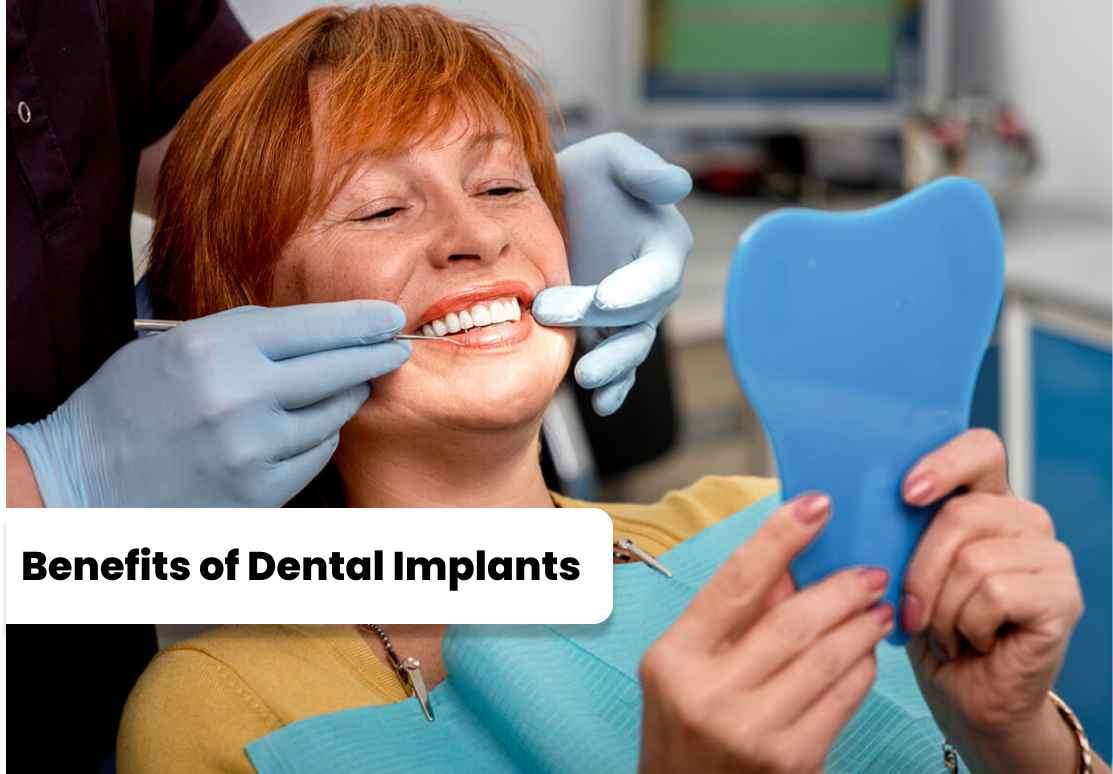
1. Restored Oral Functionality: Dental implants mimic the structure and function of natural teeth, allowing individuals to chew, speak, and bite with confidence. Unlike dentures, which may slip or cause discomfort, dental implants offer a permanent solution that feels and functions just like natural teeth.
2. Enhanced Aesthetics: Dental implants are designed to seamlessly blend with the surrounding teeth, providing a natural-looking smile. The custom-made prosthetic teeth are carefully matched to the color and shape of the patient's existing teeth, resulting in a smile that is virtually indistinguishable from natural teeth.
3. Preservation of Facial Structure: When a tooth is lost, the underlying bone in the jaw begins to deteriorate over time. Dental implants help preserve the bone structure by stimulating bone growth and preventing bone loss. This ensures that the facial structure remains intact, preventing the sunken appearance often associated with missing teeth.
4. Improved Self-Confidence: Dental implants can have a profound impact on an individual's self-esteem. Restoring a beautiful smile and the ability to eat and speak comfortably can boost confidence levels and improve overall quality of life.
5. Longevity and Durability: With proper care and oral hygiene, dental implants can last a lifetime. Unlike other tooth replacement options, such as dentures or bridges, which may require regular repairs or replacements, dental implants offer a reliable and long-lasting solution.
1. Endosteal Implants: Endosteal implants are the most common type of dental implants. They are inserted directly into the jawbone during a surgical procedure. Once the osseointegration process is complete, the replacement tooth or a dental bridge is attached to the implant. Endosteal implants are suitable for individuals with sufficient bone density.
2. Subperiosteal Implants: Subperiosteal implants are an alternative option for patients with insufficient bone density or those who do not wish to undergo bone grafting. These implants are placed on or above the jawbone, underneath the gum tissue. A metal framework is attached to the implant, which holds the replacement teeth securely in place.
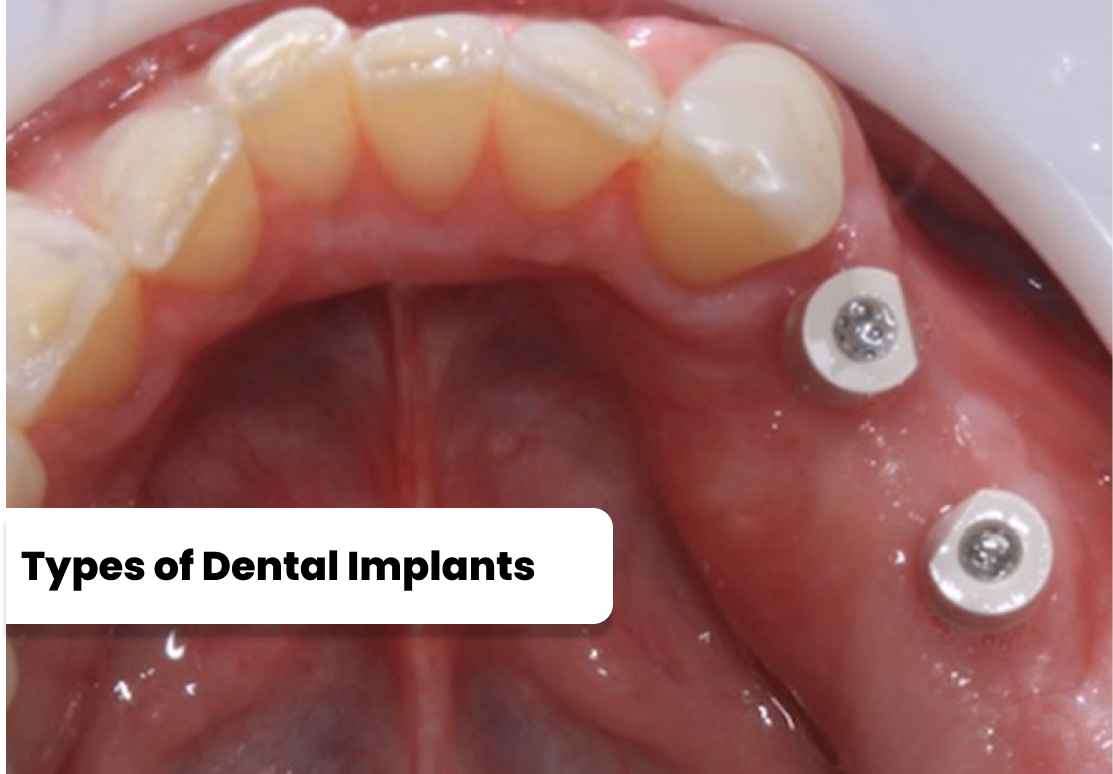
1. Endosteal Implants: Endosteal implants are the most common type of dental implants. They are inserted directly into the jawbone during a surgical procedure. Once the osseointegration process is complete, the replacement tooth or a dental bridge is attached to the implant. Endosteal implants are suitable for individuals with sufficient bone density.
2. Subperiosteal Implants: Subperiosteal implants are an alternative option for patients with insufficient bone density or those who do not wish to undergo bone grafting. These implants are placed on or above the jawbone, underneath the gum tissue. A metal framework is attached to the implant, which holds the replacement teeth securely in place.
1. Oral Health: Before undergoing dental implant surgery, it is essential to have good oral health. This includes having healthy gums, adequate bone density, and being free from conditions such as periodontal disease. A thorough examination by a dental professional will determine if you are a suitable candidate for dental implants. 2. Bone Density and Volume: Sufficient bone density and volume are crucial for successful dental implantation. In cases where the jawbone lacks the necessary density, bone grafting or alternative treatments such as subperiosteal implants may be recommended. 3. Overall Health: Certain systemic conditions, such as uncontrolled diabetes or autoimmune disorders, can affect the success of dental implant surgery. It is important to discuss your medical history with your dentist to evaluate if dental implants are a suitable option for you.
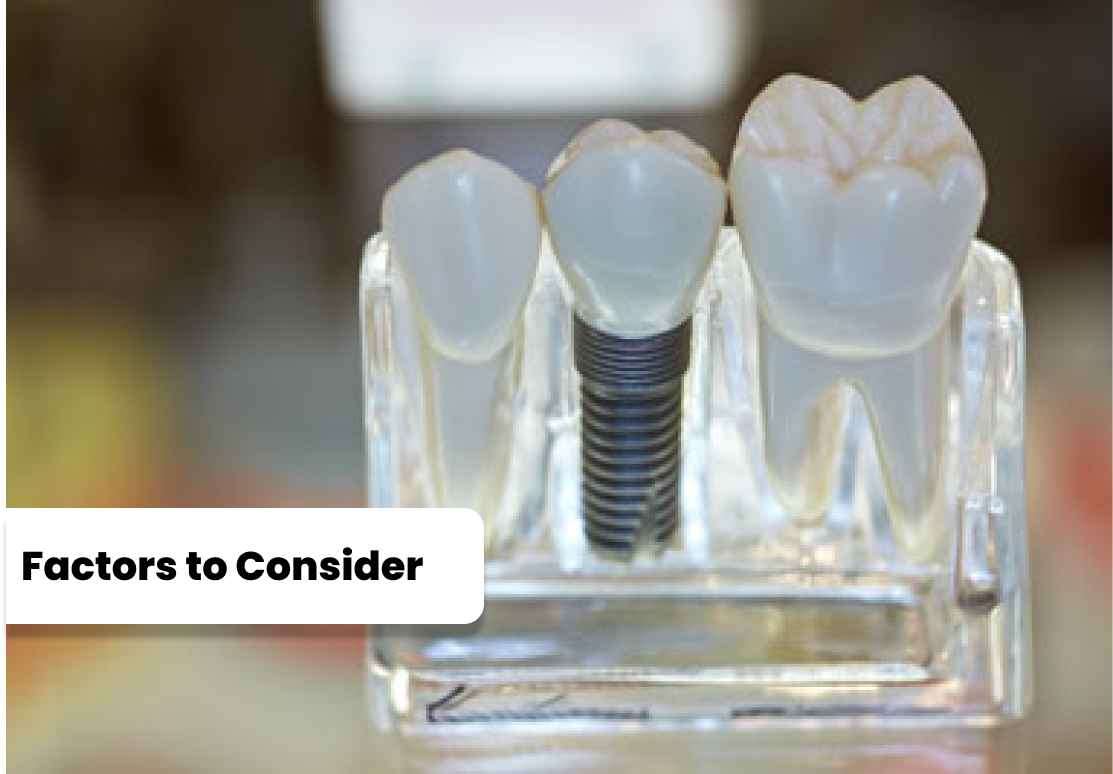
1. Oral Health: Before undergoing dental implant surgery, it is essential to have good oral health. This includes having healthy gums, adequate bone density, and being free from conditions such as periodontal disease. A thorough examination by a dental professional will determine if you are a suitable candidate for dental implants.
2. Bone Density and Volume: Sufficient bone density and volume are crucial for successful dental implantation. In cases where the jawbone lacks the necessary density, bone grafting or alternative treatments such as subperiosteal implants may be recommended.
3. Overall Health: Certain systemic conditions, such as uncontrolled diabetes or autoimmune disorders, can affect the success of dental implant surgery. It is important to discuss your medical history with your dentist to evaluate if dental implants are a suitable option for you.
Dental implant surgery has shown high success rates, with studies reporting success rates ranging from 95% to 98%. However, individual outcomes can vary based on factors such as oral hygiene maintenance, overall health, and lifestyle habits. Proper care and regular dental check-ups are essential to ensuring the longevity and success of dental implants.
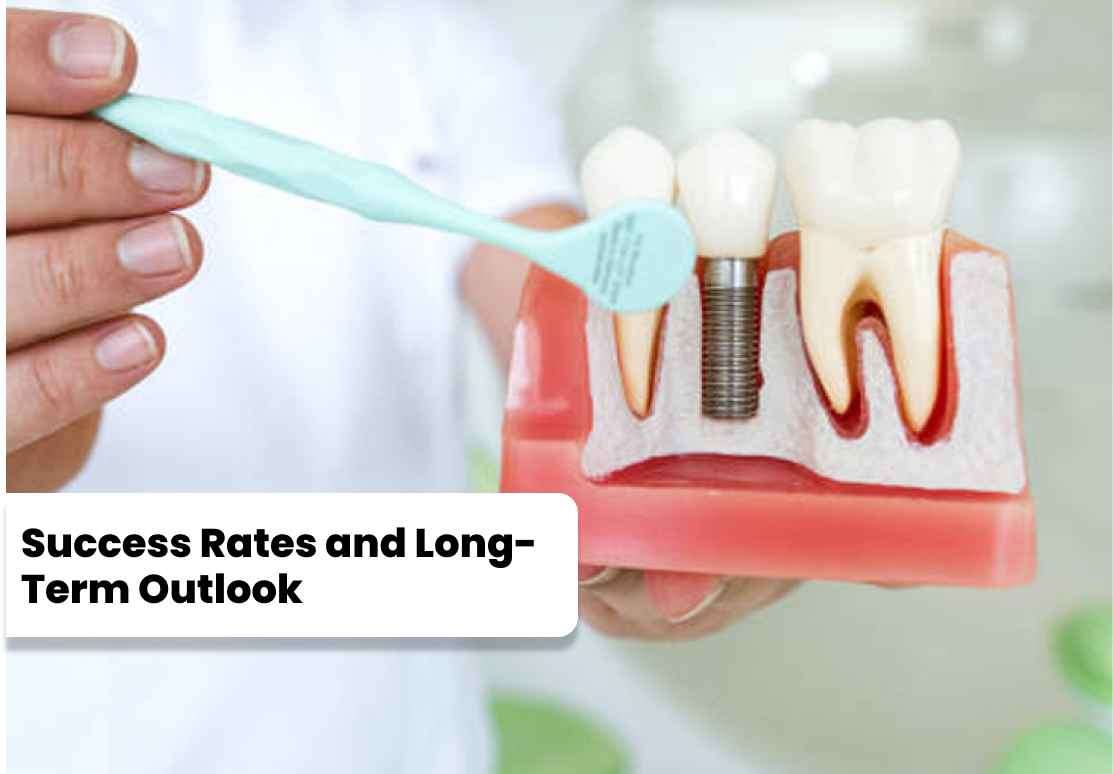
Dental implant surgery has shown high success rates, with studies reporting success rates ranging from 95% to 98%. However, individual outcomes can vary based on factors such as oral hygiene maintenance, overall health, and lifestyle habits. Proper care and regular dental check-ups are essential to ensuring the longevity and success of dental implants.
Once the dental implant procedure is complete, it is crucial to maintain proper oral hygiene. This includes brushing and flossing regularly, as well as visiting your dentist for routine check-ups and professional cleanings. Additionally, avoiding habits such as smoking and excessive alcohol consumption can contribute to the long-term success of dental implants.
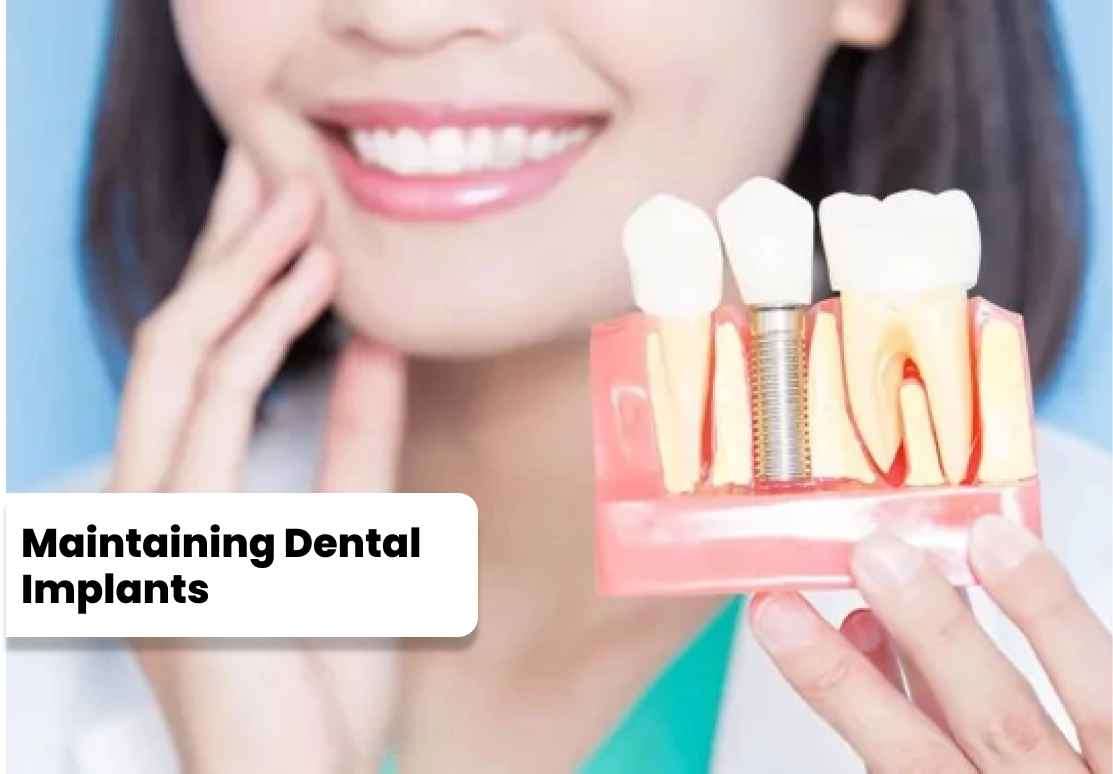
Once the dental implant procedure is complete, it is crucial to maintain proper oral hygiene. This includes brushing and flossing regularly, as well as visiting your dentist for routine check-ups and professional cleanings. Additionally, avoiding habits such as smoking and excessive alcohol consumption can contribute to the long-term success of dental implants.
|
Serial No |
City |
Minimum Cost per Implant (INR) |
Average Cost per Implant (INR) |
|
1 |
Mumbai |
25,000 |
45,000 |
|
2 |
Delhi |
20,000 |
40,000 |
|
3 |
Bangalore |
18,000 |
35,000 |
|
4 |
Chennai |
15,000 |
30,000 |
|
5 |
Kolkata |
12,000 |
25,000 |
|
6 |
Hyderabad |
12,000 |
25,000 |
|
7 |
Pune |
10,000 |
20,000 |
|
8 |
Ahmedabad |
8,000 |
18,000 |
|
9 |
Jaipur |
8,000 |
18,000 |
|
10 |
Chandigarh |
7,000 |
16,000 |
|
11 |
Lucknow |
7,000 |
16,000 |
|
12 |
Indore |
6,000 |
14,000 |
|
13 |
Kochi |
6,000 |
14,000 |
|
14 |
Coimbatore |
5,000 |
12,000 |
|
15 |
Bhopal |
5,000 |
12,000 |
|
16 |
Nagpur |
4,000 |
10,000 |
|
17 |
Goa |
4,000 |
10,000 |
|
18 |
Mangalore |
3,500 |
8,000 |
|
19 |
Trivandrum |
3,500 |
8,000 |
|
20 |
Guwahati |
3,000 |
7,000 |
|
Serial No |
Clinic Name |
Address |
Contact Info |
|
1 |
All India Institute of Medical Sciences (AIIMS) |
Ansari Nagar, New Delhi - 110029 |
Phone: +91-11-26588500 |
|
2 |
Maulana Azad Institute of Dental Sciences (MAIDS) |
Bahadur Shah Zafar Marg, New Delhi - 110002 |
Phone: +91-11-23233925 |
|
3 |
Government Dental College and Hospital, Mumbai |
St. George Hospital Campus, Near Chhatrapati Shivaji Terminus Area, Mumbai - 400001 |
Phone: +91-22-22620668 |
|
4 |
Government Dental College and Hospital, Bengaluru |
Victoria Hospital Campus, Fort Road, Near City Market, Bengaluru - 560002 |
Phone: +91-80-26700810 |
|
5 |
Government Dental College and Hospital, Chennai |
Opp. Fort Railway Station, Poonamallee High Road, Park Town, Chennai - 600003 |
Phone: +91-44-25612316 |
|
6 |
Government Dental College and Hospital, Kolkata |
237, Acharya Jagadish Chandra Bose Road, Kolkata - 700020 |
Phone: +91-33-22235067 |
|
7 |
Government Dental College and Hospital, Hyderabad |
Afzal Gunj, Near City College, Hyderabad - 500012 |
Phone: +91-40-24653987 |
|
8 |
Government Dental College and Hospital, Ahmedabad |
Civil Hospital Campus, Asarwa, Ahmedabad - 380016 |
Phone: +91-79-22682060 |
|
9 |
Government Dental College and Hospital, Jaipur |
Near SMS Hospital, Tonk Road, Jaipur - 302004 |
Phone: +91-141-2511153 |
|
10 |
Government Dental College and Hospital, Lucknow |
Moti Mahal Campus, Near Balrampur Hospital, Lucknow - 226001 |
Phone: +91-522-2628011 |
Please Wait..